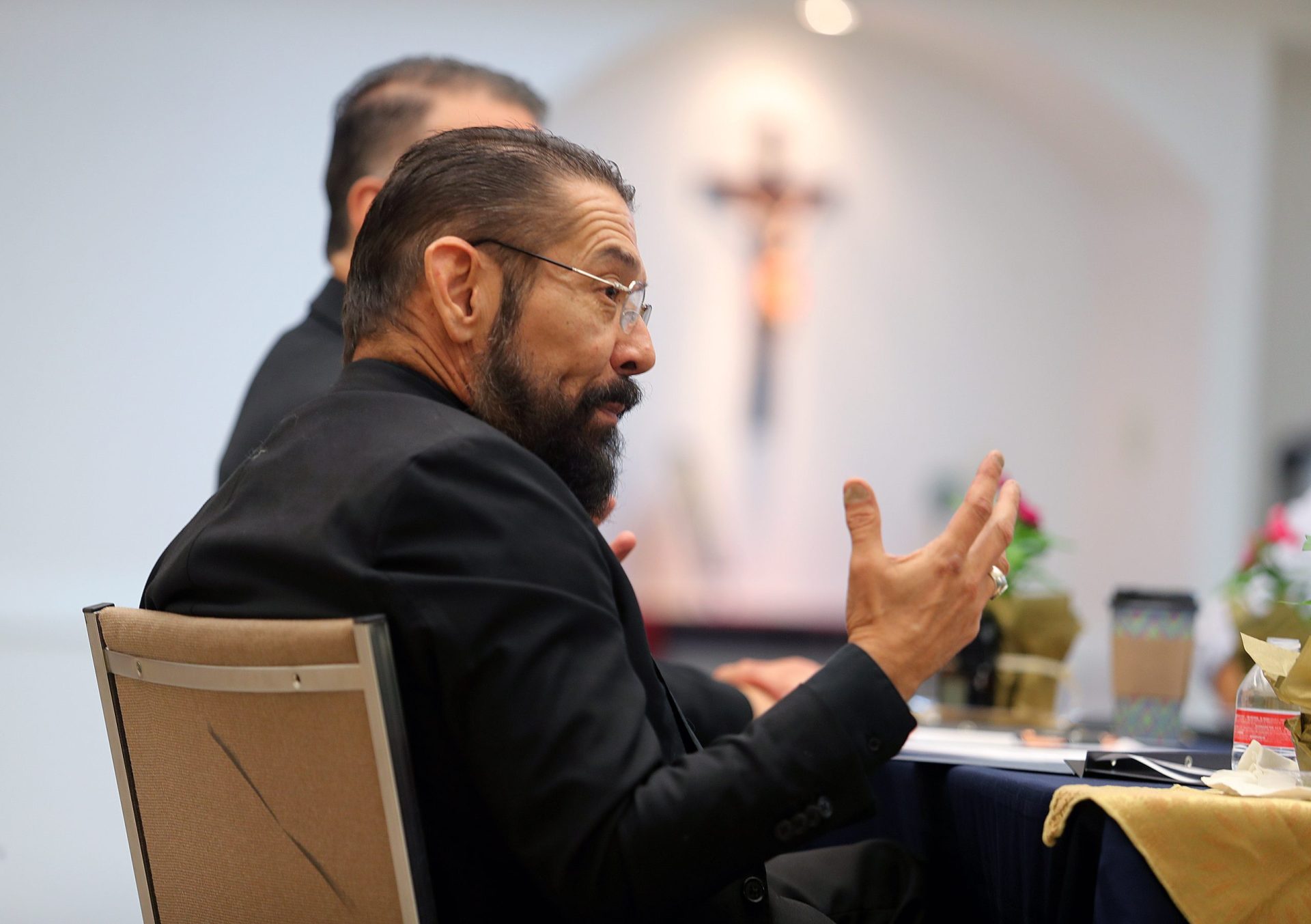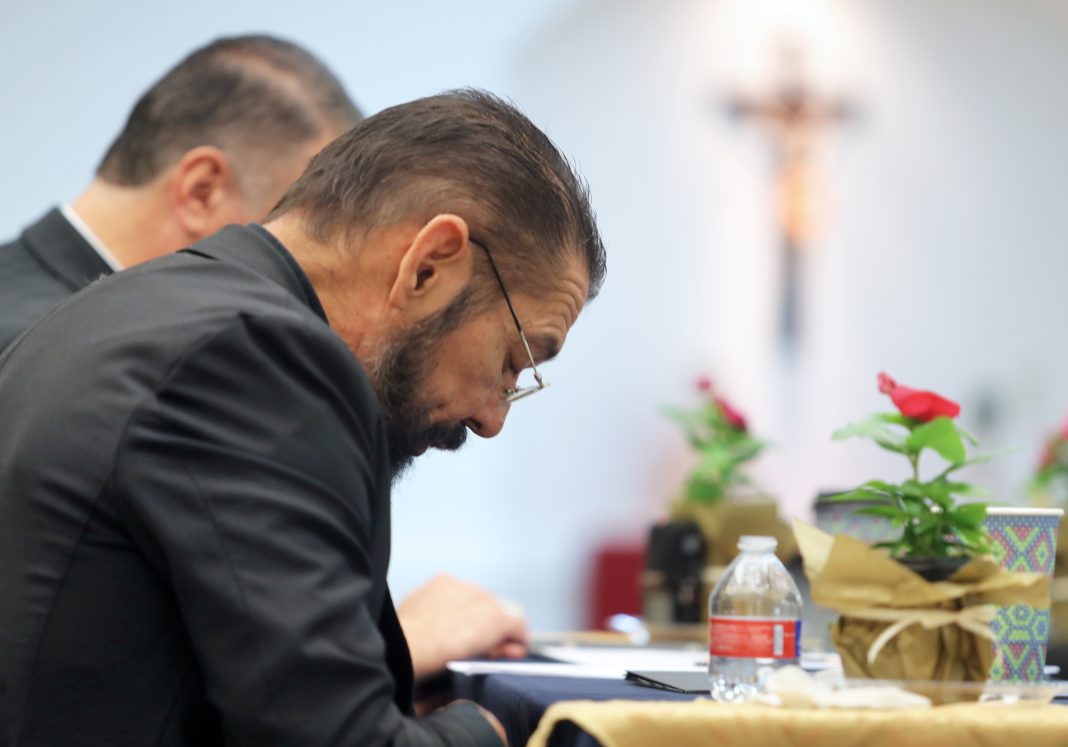|
Only have a minute? Listen instead
Getting your Trinity Audio player ready...
|

SAN JUAN — Bishop Daniel E. Flores wants the media to keep it real considering immigration.
The bishop of the Catholic Diocese of Brownsville hosted a roundtable discussion with members of the media Tuesday to share news about the state of Catholicism in the Rio Grande Valley, a venue and opportunity to discuss immigration amid an all-out media blitz at the border due to the end of Title 42, the pandemic-era public health policy that expelled migrants from the border.
He also discussed the Cathedral and his role with the Synod at the Vatican.
Flores, along with Auxiliary Bishop Mario A. Avilés led the forum from inside the Bishop Adolf Marx Conference Center at the Diocese of Brownsville Pastoral Center, located at 700 N. Virgen De San Juan Blvd. in San Juan.
The discussion was held in observance of World Communications Day, a day that encourages dialogue between church leaders and their respective communities.
“The pope always declares a day to focus on appreciation for the ministry of communication around the world,” Flores said. “The local churches like in the Diocese of Brownsville, we try to have an event that in some ways helps us to kind of just have a forum to express appreciation to the local media for their work, but also kind of keep the lines of communication open.”
Flores discussed the end of Title 42, which came Thursday, and the relationship the diocese has with local law enforcement.
“One of the great things about the Valley is that now for a good number of years it was a close sense of cooperation because we all have to kind of work together on things like this, because it takes everybody to do their part to kind of keep things in an orderly way and to kind of remember the humanity of the immigrant, but also the pressures that are on the local community,” Flores said.

He praised local media and emphasized the importance of having a local voice to “keep it real” when other national outlets rely on “over the top” reporting, particularly in response to the reports made in anticipation of a surge in migrants following the end of Title 42.
“Generally, it’s not as chaotic and as, you know, stressed out as maybe people might get the impression it is,” Flores said.
Flores also announced that the diocese will be taking over operations at the Immaculate Conception Cathedral in Brownsville. The cathedral, where Flores hold Mass every Sunday, has been operated by the Missionary Oblates since it was built in 1856.
“The Oblates superiors who have operated the church for the last 170 years will be handing it over to the diocese as a kind of internal church thing,” Flores said. “That means that the Oblate order will no longer be responsible for the cathedral parish. The diocese will be responsible. The cathedral is the bishop’s church, but the Oblates have staffed it.”

He said that the priests who are there currently will remain for at least another year while he looks for another priest to oversee the cathedral.
The bishop also shared details about his role with the Synod, which is a gathering of primarily bishops who advise the pope about news in the different parts of the world. He said that he has been having discussions with community members to gather their priorities and concerns ahead of his planned visit to the Vatican in October.
“We have done that here in the diocese all up and down, just to hear from our people — what are they worried about, their priorities, their concerns, some things that they would hope for, and then that becomes part of the widening of an upper appreciations to what’s on the mind of people in the church right now,” Flores said. “All the bishops then go to Rome and advise the pope. Really it’s to help us figure out kind of what the current moment is asking for in terms of our response and our mission.”




